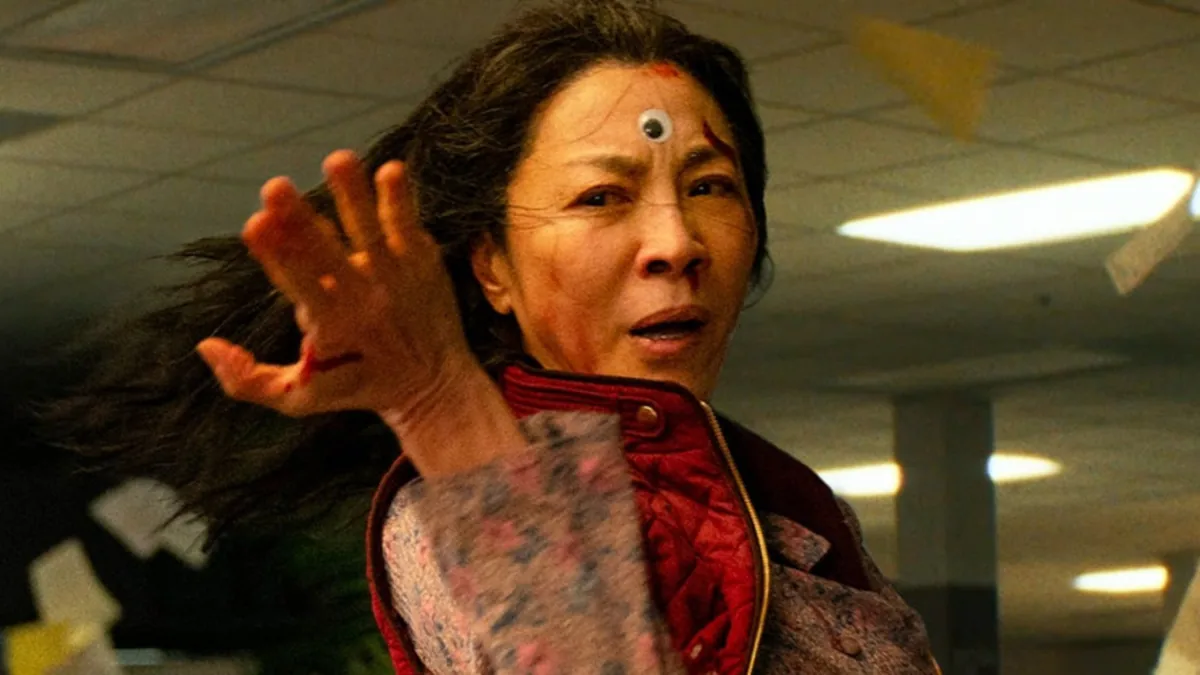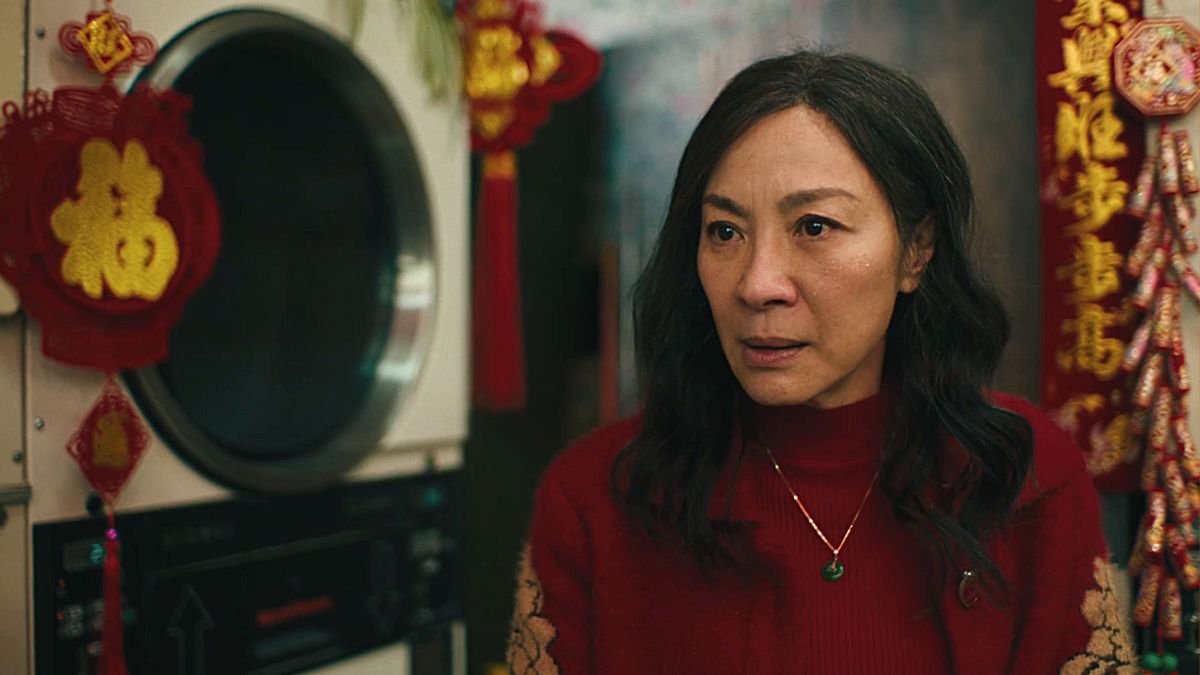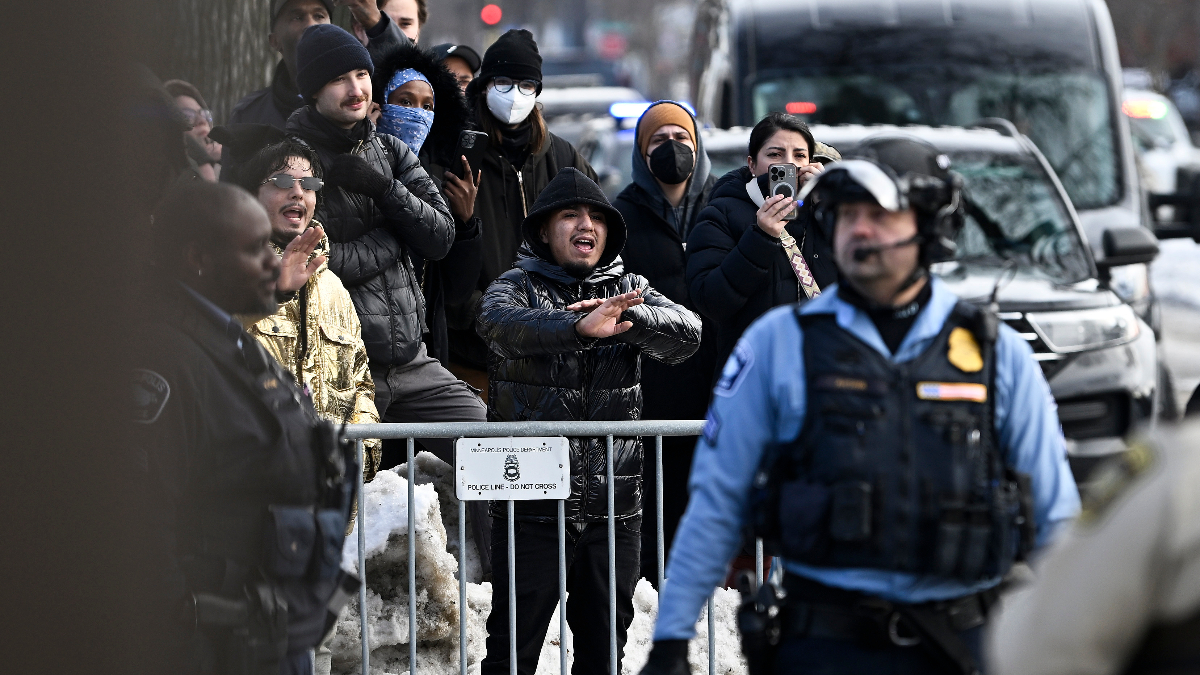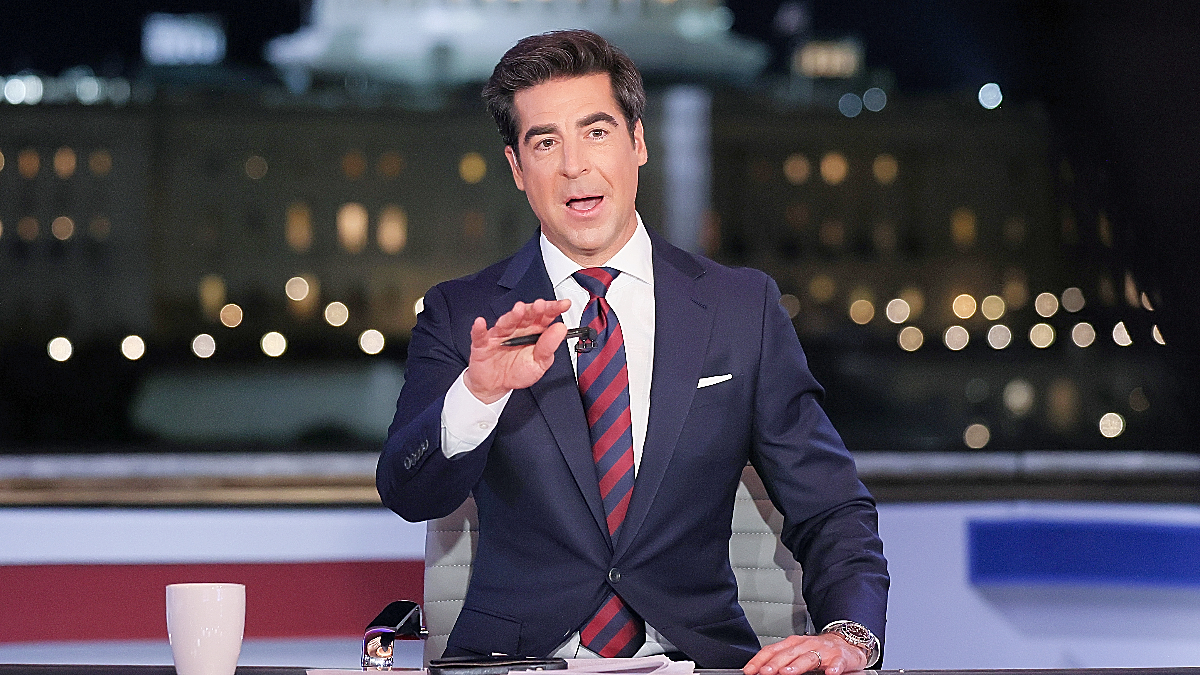On Tuesday, Michelle Yeoh shared an article to her Instagram page that may not only have violated the Academy’s regulations related to campaigning for nominees, but also raised a few eyebrows with its content. Yeoh has since the deleted the post, but its repercussions are still rippling through the film fandom and Oscars forums alike.
The article, titled “It’s Been Over Two Decades Since We’ve Had a Non-White Best Actress Winner. Will That Change in 2023?” is a think piece by Radhika Seth, arts & film editor at British Vogue. Seth points out the lack of diversity among the winners in the Best Actress in a Leading Role category across the Oscars’ 94-year history, and places on Yeoh’s potential win the weight of historic change. The hard facts that the article exposes are incontestable; namely, that there’s only ever been one non-white winner in Yeoh’s category — Halle Berry for Monster’s Ball, in 2002 — and that actresses of color are far more likely awarded if they take on supporting roles, leading some, like Viola Davis in 2016, to campaign for Best Supporting Actress category from the jump, even though her effort in Fences was very much that of the protagonist, and not a secondary character.
This might be hard to believe, but that was Davis’ first and only Oscar win — maybe because her performance was that of a leading lady, making competition virtually impossible for any other nominee. But would she have won if she had campaigned for the “correct” category? In a fair world, Davis’ masterful and gut-wrenching performance in Fences would have definitely given Emma Stone’s much more understated effort in La La Land a run for its money, but history gives us a clear answer to that question, and it comes in the form of a resounding “no,” so maybe that was the right move from Davis’ team after all.
There is simply no denying, then, that Vogue‘s article is incredibly pertinent to 2023 and to Yeoh herself, the surest bet for the first non-white winner in this category in 22 years, and only the second in the Oscars’ entire history. However, one paragraph in Seth’s Op-Ed has caused particular uproar; she seemingly argues for Yeoh’s win based on the fact that her perceived-closest competitor, Cate Blanchett, already has two Oscars, and a third would be somewhat superfluous. For the purpose of clarity, here is that paragraph in full:
“Detractors would say that Blanchett’s is the stronger performance—the acting veteran is, indisputably, incredible as the prolific conductor Lydia Tár—but it should be noted that she already has two Oscars (for best supporting actress for The Aviator in 2005, and best actress for Blue Jasmine in 2014). A third would perhaps confirm her status as an industry titan but, considering her expansive and unparalleled body of work, are we still in need of yet more confirmation? Meanwhile, for Yeoh, an Oscar would be life-changing: her name would forever be preceded by the phrase ‘Academy Award winner,’ and it should result in her getting meatier parts, after a decade of being criminally underused in Hollywood.”
Of course, nothing enrages those who wish to maintain the (very white) status quo more than the implication that a person of color might find success based on their race — or so-called “positive discrimination” — and not their merit. An overly-simplified interpretation of this specific passage of the Vogue article, which Yeoh unfortunately decided to share to her Instagram profile, has turned many, previously-indifferent film fans against the Everything Everywhere All At Once actress. All over the internet, Yeoh has been accused of “sounding desperate,” “putting her fellow nominee down,” or “fishing for pity votes.”
At best, Yeoh is guilty of breaking the Academy’s campaigning rules by directly referencing a competitor’s name, but she isn’t guilty of any of the above. The overarching point of the Vogue article, one that seems to elude Radhika Seth’s and Michelle Yeoh’s accusers, is that merit alone has never been enough for a person of color to be distinguished within traditionally white-dominated industries.
The wording could have definitely been better in the paragraph’s opening sentence, specifically when using “the stronger performance” to talk about Blanchett’s effort in TÁR. However, readers who seek the excerpt’s original context — a practice today’s readership seems adamantly resistant to — will soon find that Seth clarifies that when faced with two Oscar-nominated performances as leveled as Yeoh’s and Blanchett’s, the white actress is the more likely winner. The Academy’s voting body remains majority white, and as Seth points out, is statistically more likely to favor the performance that they most relate to. She adds that Blanchett’s more-conventional career path, and greater fame, could also influence their decision.

Despite what an out-of-context paragraph in an otherwise-incisive work of film journalism might indicate, Yeoh’s possible Oscar win this Sunday will never, can never, and should never be labeled a “diversity pick.” Such would be a disservice not only to Yeoh’s incredible career, but especially to the wonderful work she displayed in Everything Everywhere All At Once.
If such a thing as “diversity picks” actually existed in Hollywood, wouldn’t there be more than one non-white Best Actress winner by now? If you really think about it, that scenario could not be further from the truth. If any white actress delivered the once-in-a-lifetime performance that Yeoh did in Everything Everywhere (which, by the way, is the most-nominated film at this year’s Oscars), there would be no one questioning her claim to the award.
Yes, the race is incredibly tight between Yeoh and Blanchett. Each comes armed with a Golden Globe for Best Actress; Yeoh in a Musical or Comedy, and Blanchett in Drama. Blanchett was victorious at the BAFTAs, while Yeoh won the SAG —- the award deemed most predictive on the path to Oscar success, given the voting-body overlap.
Sill, if Yeoh does end up stepping onto the Dolby Theater stage on Sunday, it will not be due to her race. If anything — as both this article and Vogue‘s have tried to explain to anyone willing to listen — being Asian will have made Yeoh’s conquest all the more difficult, and therefore all the more important. No, Michelle Yeoh shouldn’t win “because she’s Asian,” but a formal recognition of her work, considering the racist history of the Academy Awards and the film industry at large, matters greatly.











Published: Mar 8, 2023 03:30 pm